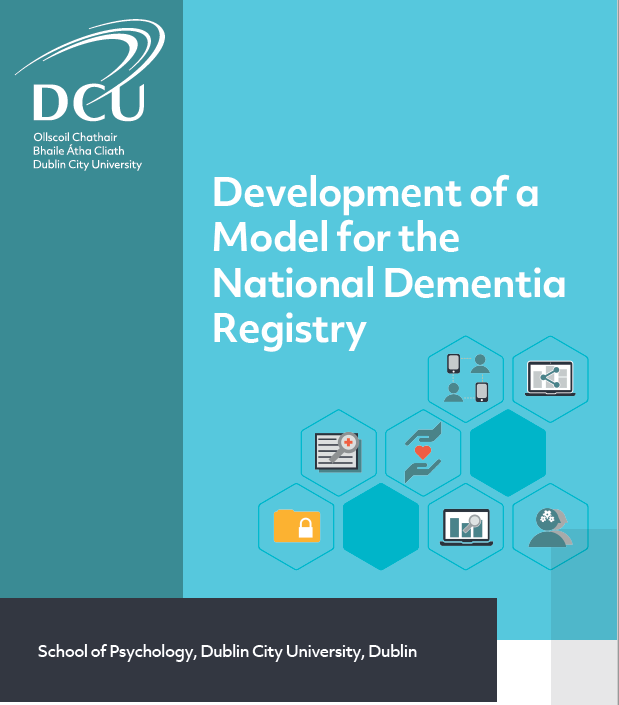

Model for the National Dementia Registry developed
There is very poor recording of dementia data across all care settings in Ireland. Many other countries recognise the importance of having a dementia registry and they use data from the registry to support the development, the operation and the quality of their dementia health and social care services.
The final report from the project shows that a dementia registry is a feasible way to systematically collect and analyse data on dementia in Ireland; helping to shape a responsive and fit-for-purpose system. A timely output from the project is the identification of the dementia minimum data set, where consensus was reached on what minimum data should be collected to inform standardisation of services across the country and enable comparisons across care setting nationally and internationally.
Read Dr. Louise Hopper's RTÉ Brainstorm article on why a National Dementia Registry would create a framework for reliable, accurate, valid and timely dementia data.
The project was informed by a national Steering Group and Special Interest Group (SIG) which included expert inputs, lived experience insights, and general oversight for the duration of the project. In addition to regular consultation with experts across all relevant domains, the wider environment within which the National Dementia Registry would operate was also explored.
Throughout the development of the dataset, there was a focus on future-proofing and interoperability with a view to potential linkages to data sources over time.
Agreeing a minimum dataset for the registry does itself support standardisation and will assist memory clinics, hospitals, and GPs to collect information and report dementia efficiently.
In addition, having a minimum data will allow data comparison nationally and internationally, by centre, geographical location, service use, type of dementia and other variables within the dataset as needed.
The authors fo the report were Dr. Louise Hopper and Christina Bowen from DCU's School of Psychology.
